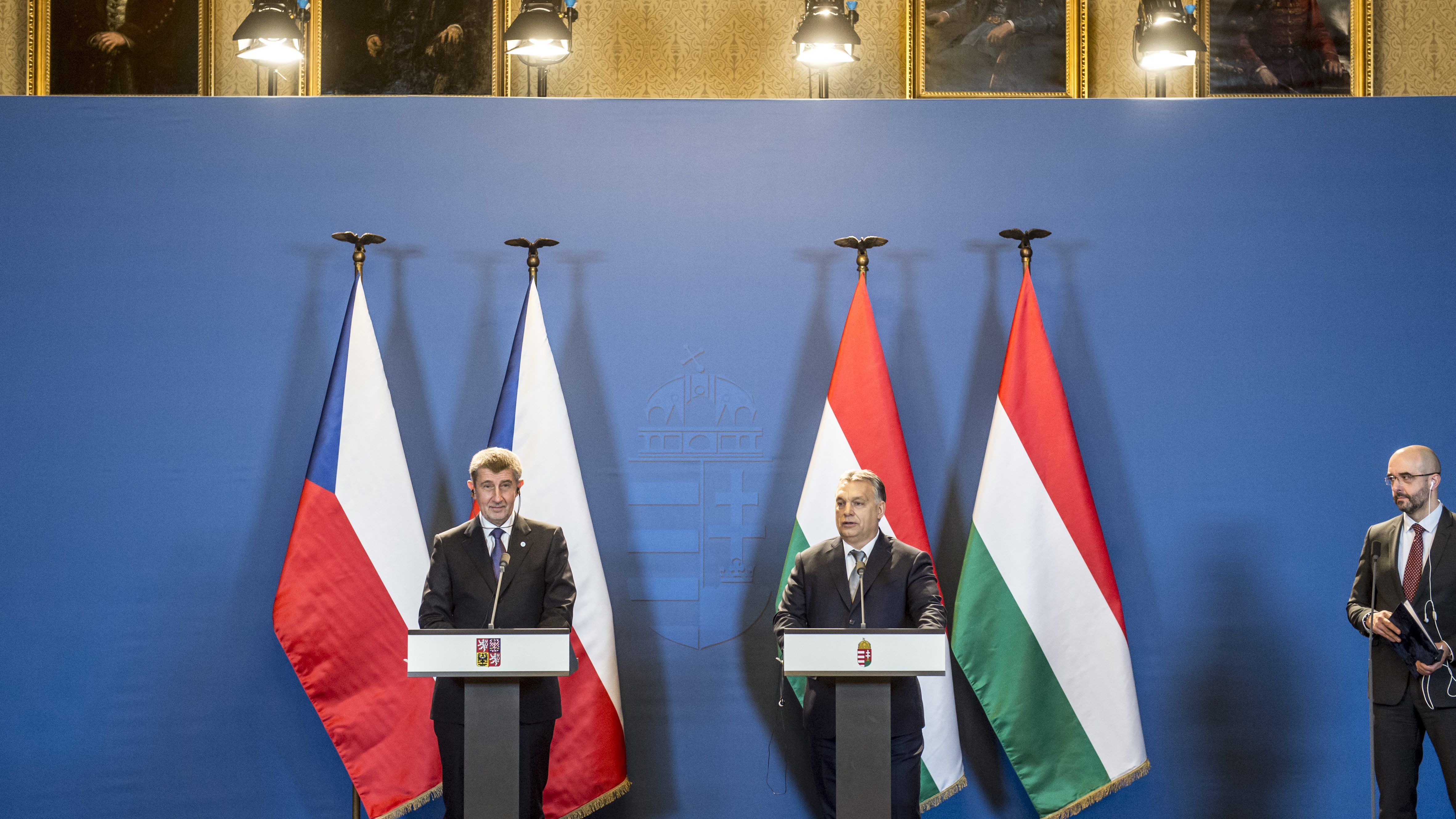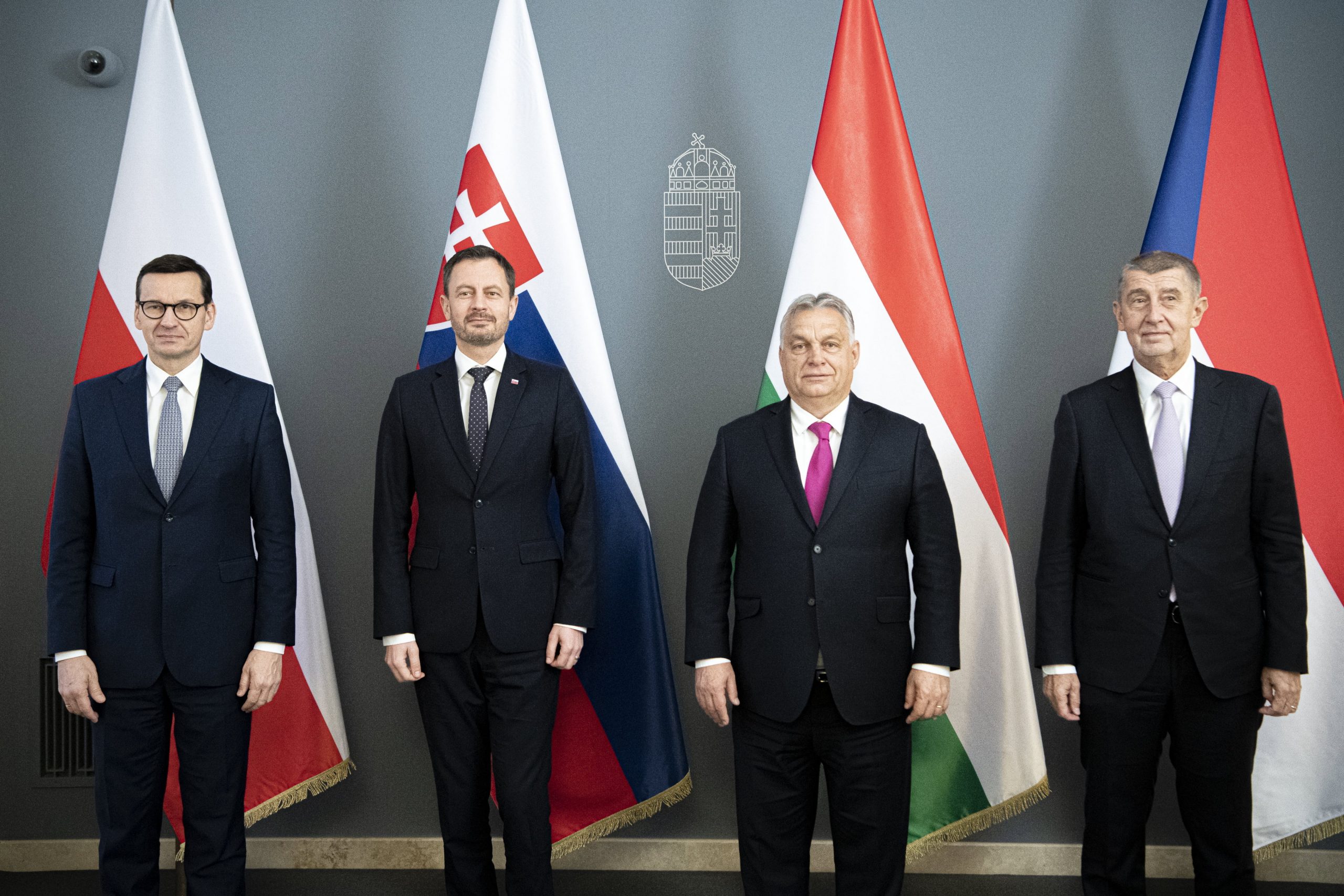
When asked about statements made by George Soros in Davos, the Prime Minister said that it is rare for such savage attacks to be launched on Hungary, but added that he thinks this was a “campaign opener”: George Soros has announced his intention to take part in the Hungarian election campaign, and “has made his debut on the Hungarian campaign stage with monstrous lies”.
Mr. Orbán stated that the conflict is fuelled by the fact that Hungary wants to protect its own interests, does not want to become an immigrant country, and wants to preserve its border defence and the border security fence; meanwhile George Soros wants to make every country an immigrant country and wants to make Europe an immigrant continent. “We must fight this battle”, he said, adding that George Soros has become a true migrant: he has transgressed every border.

In reply to a question on a possible date for adoption by the Hungarian parliament of the “Stop Soros” legislative package, Mr. Orbán said that details concerning the debate and vote on the bill will be decided by the governing party’s parliamentary group leader.
At the press conference the Prime Minister was asked whether it is possible that Hungary will follow the United States’ example by withdrawing from negotiations on the United Nations’ migration treaty.
He replied that a recent article by the UN Secretary General has made it clear that the UN wants to draw up, at a global level, migration-related principles and implementation methods that are unacceptable to Hungary.
Mr. Orbán said that the documents being drawn up must be examined from a Hungarian perspective, after which a decision will be made – regardless of America’s decision. He added that Péter Szijjártó, Minister of Foreign Affairs and Trade, will need to prepare a detailed proposal on the topic at the next Cabinet meeting. He also called for a Visegrád Group (V4) meeting on the issue.

Babiš brings new colour to V4 cooperation
With regard to Andrej Babiš, the victor in the recent Czech parliamentary elections, Mr. Orbán said that there is a great need for European politics – and within it Central European politics – to receive new motivation, a new perspective, and to “return somewhat to the realm of common sense”.
The Prime Minister thanked his Czech counterpart for the fact that Prague had sent border security forces to the Hungarian-Serbian border at the height of the migration crisis and international attacks. He also spoke about the fact that on major European issues the two countries are in agreement and share common interests.
Praising Hungarian-Czech relations, Mr. Orbán noted that the Czech Republic is Hungary’s seventh largest trade partner by volume, with trade flows of more than 8 billion euros in 2017: a 12 per cent increase on the previous year.
He explained that many successful Czech enterprises operate in Hungary, and there have also been many Hungarian investments in the Czech Republic – with MOL, for instance, having purchased a chain of petrol stations. He also noted that the Hungarian government is counting on the Czechs with regard to defence industry cooperation.

Andrej Babiš told reporters that cooperation between Hungary and the Czech Republic is very good, and on many European issues the two countries have similar opinions. He noted that reforms are needed within the European Union, and people’s opinions must be heard. He added that the migrant quotas are dividing Europe and are ineffective, and both Hungary and the Czech Republic – as well as the other two V4 partners – are of the same opinion on this.
The Czech prime minister stressed that the V4 countries share a common standpoint on the future of Europe – and in this regard migration is a key issue. He said that on this issue Hungary has already provided an example of solving the problem by lawful statutory means, despite criticism from many. Mr. Babiš said that the rationale for the V4 is very solid, as, for instance, the partner countries all agree on EU cohesion funding, Brexit and the EU budget.
On the subject of bilateral relations, Prime Minister Babiš said that trade relations have been increased, greater numbers of Czech and Hungarian enterprises are investing in each other’s countries, and defence industry cooperation is also very important. “The development of a high-speed rail link also presents good opportunities for cooperation”, he told the press. The Prime Minister also told reporters that the possibility of establishing a regional investment bank has been discussed, but he is not convinced of the need for it – instead favouring the preparation of a joint financial plan for specific development projects.

Prime Minister Orbán added that his Czech counterpart had convinced him that the focus must be on investment projects, and so the projects will be dealt with first, and “everything else can come later”.
In reply to another question, Andrej Babiš said that there had not been discussion of the possibility of Hungary exercising its veto in the European Council in support of Poland. He added that there will presumably be a solution to the issue.
Mr. Orbán said that Hungary’s standpoint is that “we shall not accept the application of double standards and unfair procedures”, and all countries subjected to double standards – including Poland – can count on Hungary standing by them.

